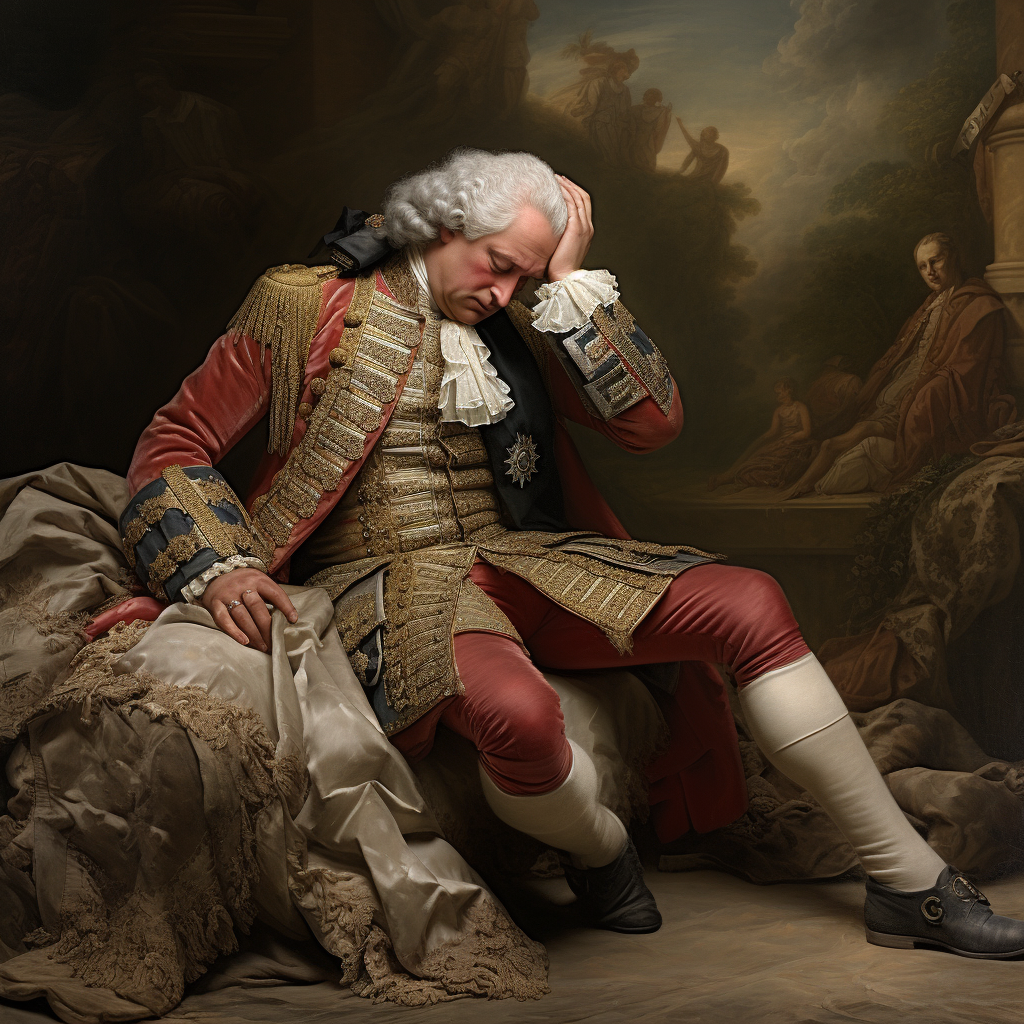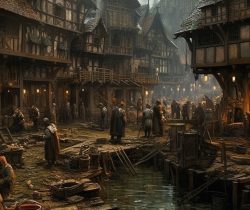
“My Unhappy People” February 4, 1777
Leave your thoughtsNews From Philadelphia • February 4, 1777
General Washington’s Proclamation, January 25, 1777: In view of some Americans, deluded by General Howe’s promise of pardon, having been induced to take loyalty oaths to the British enemy, Washington commands all persons who took such oaths to repair to the Continental army and declare allegiance to the United States or be commanded to take up residence behind enemy lines.
Repent: William Livingston, American governor of New Jersey, urges general repentance before God.
Thomas Paine American Crisis #2: Paine laments the hypocrisy of British promises of pardon to Tories, when they can’t even hold American territory they have taken and then abandoned. He speaks of gaining the courage to hear the whistle of cannon balls. He eviscerates the Quakers who eschew the use of arms but take sanctuary behind British arms at the same time. On cowardice: “..What can we say? We cannot alter nature, neither ought we to punish the son because the father begot him in a cowardly mood.” Paine laments the pessimism of men who see the victory at Trenton and refuse to believe it has even taken place. Speaking of General Howe: “Your avowed purpose here is to kill, conquer, plunder, pardon and enslave..[you are].. the prince of ruffians.” No effort has been made by the British to restrain plunder and destruction. Mahogany furniture is cut for firewood. A shocking general order is found among the papers of Hessian Colonel Rall, killed at Trenton: “His excellency the commander in chief orders, that all inhabitants which shall be found with arms, not having an officer with them, shall be immediately taken and hung up.” A story: Paine had observed to a Tory acquaintance that God was on the side of the Americans. The Tory replied: “We care nothing for that. You may have HIM, and welcome; if we have but enough of the devil on our side we shall do.”
The general character of the English: Dec. 3, 1776. Translated letter of foreigner traveling in England. “The general character of the English is certainly the most absurd and fantastic that ever fell to the lot of human nature.” The English will treat their enemy with grace and their friends with malice — lending large sums to strangers and going to court against friends. Blessed with wealth and strength, and seeing themselves as “just, generous, and humane” they are blemished by bald ambition and the African slave trade. Taking dominion of East India by killing “hundred thousands” one “Clive” brought back immense wealth to England and then cut his throat — to the applause of his countrymen. Having been blessed by American trade, and the obedience of 3 million subjects, the King insists the colonists agree that “two and two make five.” Blind to reason, the English sovereign enlists mercenary troops, slaves, and Indians to bloody his own people. America, under this tyranny is a “scene of desolation and distress…the royal army are ravishing the women, murdering the men, and laying waste..” to the country. Although the outcome of the quarrel cannot be known, the king runs the risk of losing the jewel of his crown, America, and perhaps his crown itself. The British people claim love for liberty but make it an idol by ignoring its substance. Two songs are sung in British taverns — God Save the King, and Britons Strike Home. The writer paints a picture of a people drunk on the virtues of England, but blind to its vice. The British are not inventive, in literature or the arts, and rest their faith wholly in Shakespeare and Newton, now long gone. The British people are narrowly educated pin heads. “It is enough for him that he believes in the Athanasian Creed, reverences the splendor of the court, and makes pin heads.” British knowledge of their Constitution is shallow — applauding its glory but knowing little of its principles. Americans, on the other hand, have expansive general knowledge and valuable skills; even tailors and shoemakers read constantly. The King will either subjugate America, and be infamous for it, or lose America and be ridiculed.
The Continental Dollar in Pennsylvania: Continental dollars are declared equal to a Spanish “mill’d” silver dollar, 17 penny weight and six grains — or seven shillings, six pence. Citizens are ordered to take them in payment for all debts or forfeit the right to sue for the value of goods sold. Contracts for payment demanding British sterling may be paid in Continental dollars. Substantial financial penalties are attached to refusing the Continental.
Taxes & Courts: Resolutions are passed reminding the public that taxes are due, and that the courts are open. (See John Adams on a fellow frequently in trouble with the law being very happy the Revolution had closed the courts.)
Col. John Haselet, RIP: Mortally wounded, his body was interred in the burial place of the First Presbyterian church. Indian war hero, delegate to the Delaware assembly, liberal education, dedicated to American liberty.
Anthony Morris, RIP: Officer in the first battalion of Philadelphia Militia, killed at the battle of Princeton.
For Sale: “The Province Island” 340 acres, five miles from Philadelphia. Maryland Plantation of 400 acres, good for grain, with barn stable, and other houses, water with pump. A ship called “The Sam” of 120 tons to be sold by the court of Admiralty. A Ship called “King George” of 200 tons. Schooner called “The Success” 40 tons, subject to condemnation.
King George Addresses Parliament October 31, 1776: The King had hoped to have suppressed the rebellion in his North American colonies. (“[I had hoped by this time]..my unhappy people, recovered from their delusion, had delivered themselves from the oppression of their leaders, and returned to their duty..”) His people have openly renounced all allegiance to the crown, but Canada has been saved and the treasonous leaders will be exposed and punished. The war will be expensive but it must be waged. “..no people ever enjoyed more happiness, or lived under a milder government than those now revolted provinces..”
 Strange Lords — Virginia to Tories, “Get Out” December 19, 1776. The general assembly orders all loyalists to leave the country. Referencing an English statute, (“..the 27th of Edward III, chapter 17th..”), all merchants or store-keepers who assisted Great Britain in restraining trade are ordered to return to England, or be confined as a prisoner of war. “..if our liege people, merchants or others, be endamaged by any Lords of strange lands..” (This appears to be an effort by the Virginia General Assembly to use an old English law against the English.)
Strange Lords — Virginia to Tories, “Get Out” December 19, 1776. The general assembly orders all loyalists to leave the country. Referencing an English statute, (“..the 27th of Edward III, chapter 17th..”), all merchants or store-keepers who assisted Great Britain in restraining trade are ordered to return to England, or be confined as a prisoner of war. “..if our liege people, merchants or others, be endamaged by any Lords of strange lands..” (This appears to be an effort by the Virginia General Assembly to use an old English law against the English.)
Desertion Penalties; November 4, 1776, Baltimore: Those who turn in a deserter will receive a $5 reward and those that harbor deserters will endure a $30 to $50 fine, which if not paid will require a whipping of not more than thirty-nine lashes.
The Gratitude of General Washington: January 23, 1777: The general thanks the militia of Pennsylvania for their heroic service and commends all battalions who wish to remain in service.
Major Flemming’s Elegy: “Amidst the horrid din of cruel war / The trumpets sound, the cannons thundring roar..” “Go happy ghost to where the good and blest / Enjoy eternal scenes of bliss and rest..”
Princeton Reward: “three villains.. abused the family in a barbarous manner, took one to two hundred pounds of goods.” (Stockings, pins, razors, leather pocket books, pocket almanacks..) One of the villains is Irish, James Watson, one unknown, and one tall, slim, in light clothing. Reward $100
Benjamin Harbeson Takes This Method: selling copper, brass, pewter and tin wares. Washing kettles, fish kettles, tea kettles, coffee and chocolate pots.
Runaway Michael McDonald: “taylor (sic) by trade”, 23 years of age, 5 feet tall” ran off with castor hat, brown rattinet coat with silver buttons, old cloth blue coat, wilton coat, purple jacket, plush breeches, three white shirts, white stockings, old shoes. “..has a good look and can behave well.” $20 reward
For Sale: shirting and sheeting linen, oznabrugs, checks, sail duck, sailor’s needles, sewing thread, brass wire, door locks, Coatings, Jeans, Fustians, Corded Dimities. “A man who understands scribbling of wool may have constant employment..” Spinners of wool needed.
Stolen: Silver watch, French made with a cover over the key hole, $6 reward
BAR IRON: to be sold by George Meade & Co..
Tags: 1777, February 4, King George, Philadelphia
Categorised in: Distilled Spirits, Uncategorized
This post was written by Jim Riley
